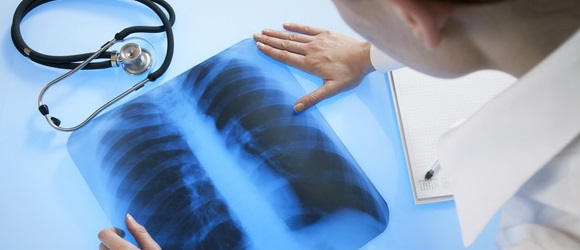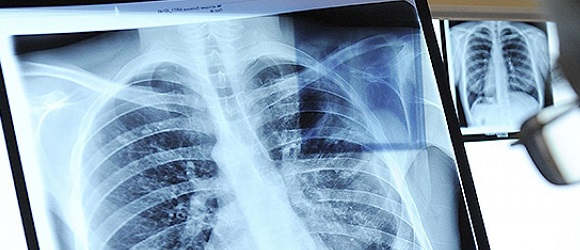Expert opinions and online advice on general pulmonology delivered via your computer or mobile device. Second opinion is available wherever there is an internet. All you need is a PC or a smartphone.
Consultation on General Pulmonology
General pulmonology (other terms - pneumology or pneumonology) covers a wide range of bronchi, lungs, pleura and mediastinum.
In particular, these include:
- bronchial asthma;
- chronic bronchitis and chronic obstructive bronchitis;
- chronic obstructive pulmonary disease (COPD);
- pulmonary tuberculosis;
- emphysema;
- pulmonary hypertension (high blood pressure in the pulmonary arteries);
- pleurisy (inflammation of the pleura);
- mucoviscidosis (cystic fibrosis);
- Lung fibrosis;
- pulmonary embolism;
- interstitial lung disease (lung tissue disorders).
Malignant pulmonary conditions are usually the subject of a specific consultation.
Diagnostics
A wide variety of tests are used to diagnose the above-mentioned issues. For remote pulmonology consultations, the most significant are imaging diagnostics, functional tests, endoscopy, and laboratory test findings.
Area-specific Imaging techniques include chest X-rays, sonography (ultrasound), computed tomography (or in some cases magnetic resonance imaging), PET-CT, and lung scintigraphy. All of them produce images of the respiratory organs in the format and volume relevant for a particular disease. For a distant evaluation, it is advisable to provide them as scans rather than descriptions.
To functional pulmonology examinations refer, for example, spirography, plethysmography, and pulmonary function tests. They help to assess the functioning of the respiratory tract organs.
Bronchoscopy (i.e., endoscopic examination of the airways) is used not only to visualize the mucosa of the larynx, trachea, and bronchi, but also to study its samples at a pathology lab. For a second opinion, a written report is usually sufficient. However, in some cases, it may be necessary to revise the results of histology/immunohistochemical testing.
Blood tests (e.g., inflammatory or tumor marker values, antibodies), microbiological examination of oropharyngeal or nasal secretions, and other laboratory diagnostics are also an important part of a pulmonology examination.
Treatment
Respiratory diseases therapy is varied and depends on both the cause of a disorder and the individual situation. Antibiotics, antiparasitic drugs, corticosteroids or other substances affecting the immune system may be used.
Therapeutic interventions are becoming increasingly important in the treatment of pulmonary conditions. These are minimally invasive (endoscopic) procedures, which are now performed not only to remove the obstructing mucosa or stop bleeding, but also to reduce lung volume (in COPD) or radiofrequency treatment in bronchial asthma. In the case of malignant masses, surgery is usually the key method.
In many issues pertaining to general pulmonology, there may be more than one treatment option. Therefore, it is always worth getting another opinion from a qualified pulmonologist before making a decision, which can help to make the right choice.
What is the service about?
A second opinion on all pulmonology issues is a service which makes it possible to get a remote consultation of a qualified specialist, based on available medical summary or study results.
It might be helpful:
• to confirm the existing diagnosis;
• to make sure that the recommended treatment, e.g. surgery, is correct;
• to obtain information on advanced methods of diagnostics and treatment relating to general pulmonology issues;
• to get expert commentary on previously performed exam results;
• to make the right choice if there are two or more possible therapeutic options.
What will the client get?
Diagnostic conclusion, observation and treatment proposals, based on the provided information. In case of the provided initial data incompleteness, will be given recommendations for additional examinations.
What data should be provided to get a second opinion?
Written reports:
- Medical report (desirable)
- Description of X-ray, MRI, CT images (desirable)
- Description of bronchoscopy and histolopathology test results
- Laboratory test results
- Spirometry and constant volume body plethysmography findings
- Up to 5 pages included
Radiology data:
- X-ray
- Chest MRI or CT
- Lung scintigraphy
- Up to 2 examinations included
What are the second opinion formats and terms?
Written second opinion:
Making a report based on the data provided, the consulting specialist summary including a diagnostic report and recommendations for further diagnostic, treatment and observation tactics. Report size: up to 1 page.
Video consultation:
All services of written second opinion. Additionally: a 10-minute video consultation with a doctor, including a visual patient examination, clarification of symptoms, radiology images consulting, explanation of the proposed treatment tactics, answering patient's questions.
Phone consultation:
All services of written second opinion. Additionally: a 10-minute telephone consultation with a doctor, including clarification of symptoms, explanation of the proposed treatment tactics, answering patient's questions.
Specialists in General pulmonology
You do not have to spend hours getting through busy hospital lines, or sitting in waiting rooms. Expert advice will be delivered fast and free of your effort.
Sort by: [[ s.txt ]]sortsort
Nothing found, try changing search options

